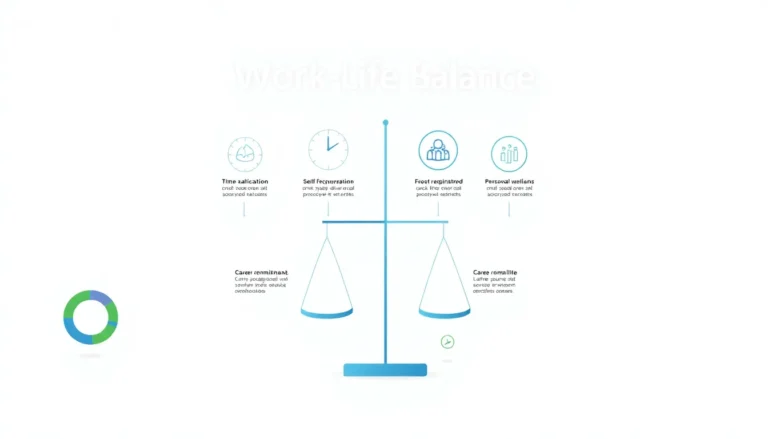Table of Contents
ToggleHave you ever wondered why some people seem to effortlessly dissect information while others just nod along? In a world filled with data, an analytical mindset isn’t just a nice-to-have: it’s a superpower. This guide will investigate into what makes up this elusive trait, how it can benefit anyone from a student to a CEO, and most importantly, how anyone can develop it. Buckle up. We’re about to embark on a journey to unlock the secrets of the analytical mind.
Understanding the Analytical Mindset

An analytical mindset is primarily about breaking down complex information into manageable parts. It’s like having a mental toolbox filled with various tools to tackle challenges. When faced with a puzzle, those with this mindset naturally tend to assess the components, seek patterns, and question conclusions. They approach problems factually, grounded in data, and often demand evidence. This habit of thinking doesn’t just appear overnight: it results from practice, curiosity, and a willingness to explore deeper meanings.
Characteristics of an Analytical Mindset
Individuals with an analytical mindset often exhibit specific traits that set them apart:
- Curiosity: They have an insatiable curiosity. Instead of accepting things at face value, they investigate deeper and push the boundaries of understanding.
- Critical Thinking: They question information and challenge assumptions, allowing for more thorough evaluations before making conclusions.
- Attention to Detail: Observing minutiae allows them to piece together larger narratives from subtle hints.
- Problem-Solving Skills: When obstacles arise, they approach them as problems to be solved, not hurdles to be avoided.
- Data Interpretation: Whether dealing with numbers or narratives, their ability to interpret data accurately guides their decisions.
Benefits of Developing an Analytical Mindset
Cultivating an analytical mindset brings numerous advantages:
- Enhanced Decision-Making: Decisions rooted in analysis are generally more effective. By discerning facts from noise, better outcomes can be achieved.
- Improved Problem-Solving: With a structured approach to issues, developing solutions becomes less daunting.
- Career Advancement: Many industries prioritize analytical skills. These individuals often find themselves in leadership roles and decision-making teams.
- Resilience Against Bias: An analytical mindset helps in recognizing and mitigating personal biases, allowing for objective evaluations.
- Greater Lifelong Learning: This mindset doesn’t only apply to work: it nurtures a habit of continued learning, personal growth, and intellectual curiosity.
Techniques to Cultivate an Analytical Mindset
Developing this mindset takes dedication, but it is very achievable. Here are several techniques to foster analytical thinking:
- Ask Open-Ended Questions: Encourage curiosity by questioning everything. Instead of asking if something is correct, ask why it is correct. This opens doors for exploration.
- Engage in Puzzles and Games: Whether it’s crosswords, Sudoku, or strategy games, these activities stimulate analytical thinking and problem-solving skills.
- Practice Mind Mapping: Visual representation of information can help break down complex ideas, revealing connections that might otherwise remain hidden.
- Reflect on Decisions: After making decisions, take the time to analyze the outcome. What went right? What didn’t? This reflection sharpens future decision-making abilities.
- Learn from Experts: Seek out courses, workshops, or books that emphasize critical thinking and analytical approaches. The knowledge and perspectives from others can be invaluable.
Applications of an Analytical Mindset in Various Fields
An analytical mindset has diverse applications across different fields:
- Business: From market analysis to strategic planning, analytical thinkers can dissect trends and project future gains.
- Science: Scientific inquiry thrives on analysis. Researchers depend on data interpretation and hypothesis testing.
- Education: Teachers who employ analytical thinking in their teaching methods encourage inquiry-based learning, fostering a love for exploration among students.
- Technology: In programming and software development, analytical skills are crucial for debugging and optimizing systems.
- Healthcare: Diagnosing illnesses involves analyzing patient data, symptoms, and history to determine the best course of action.
Challenges to Developing an Analytical Mindset
Even though its numerous advantages, developing an analytical mindset can present challenges:
- Fear of Misjudgment: People might hesitate to question established norms for fear of being wrong. Confronting this fear is crucial for growth.
- Information Overload: In a digital age where information is abundant, discerning what matters can feel overwhelming. Setting a filter for relevant data is essential.
- Time Commitment: Analytical thinking often requires a considerable investment of time. The desire for quick answers can sidetrack thorough analysis.
- Fixed Mindset: Some individuals may believe their abilities are static. Embracing a growth mindset is vital for cultivating analytical skills.







